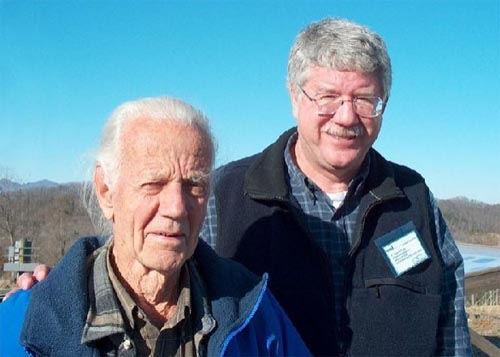When I first saw the third quarter moon through this twelve inch telescope, I thought, “My God, it looks like I’m coming in for a landing.” And I thought, “Lordy, Lordy, everyone has got to see this!” And that is when the idea of public service sidewalk astronomy got into my head. This was about 1956 or 1957. I went to the Vedanta monastery in Sacramento in 1958. The idea that others should have the opportunity to see what I could through my telescope is the reason that as soon as I was expelled from the monastery in 1967, we immediately began work to organize the Sidewalk Astronomers in 1968.
Could you tell us something about the Sidewalk Astronomers?
We are a public service organization. What we do is get telescopes out for other people. We almost never set up a telescope to look through it ourselves, but when we run the telescopes for the public, we get to see what’s up there. We usually locate objects in the night sky without aid of a guide scope (finder scope), just sighting the object off of the rocker box and pull the tube around. But for the 24-incher, we have a guide scope. Even then, I would simple climb the ladder and pull the telescope around. I didn’t need a guide scope to find things since I knew where they were.
We had a small German refractor that we used as a guide scope at first, but it got stolen. I once managed to talk a military surplus store into donation a small 90 degree elbow telescope (amici prism) so that I could use this image device as a guide scope on the 24-incher. I remember asking the store clerk, who seemed very perplexed that I would request something that was to be sold. I looked past him, though, and addressed his boss. The boss told his clerk to “take John Dobson into the back room and let him have his choice!” The clerk could not make such a decision by himself, but had to get approval from his boss. That’s just the way things work, you know. By the way, in World War II, the amici prisms used for elbow telescopes were made by amateurs. The professionals couldn’t do the job.


